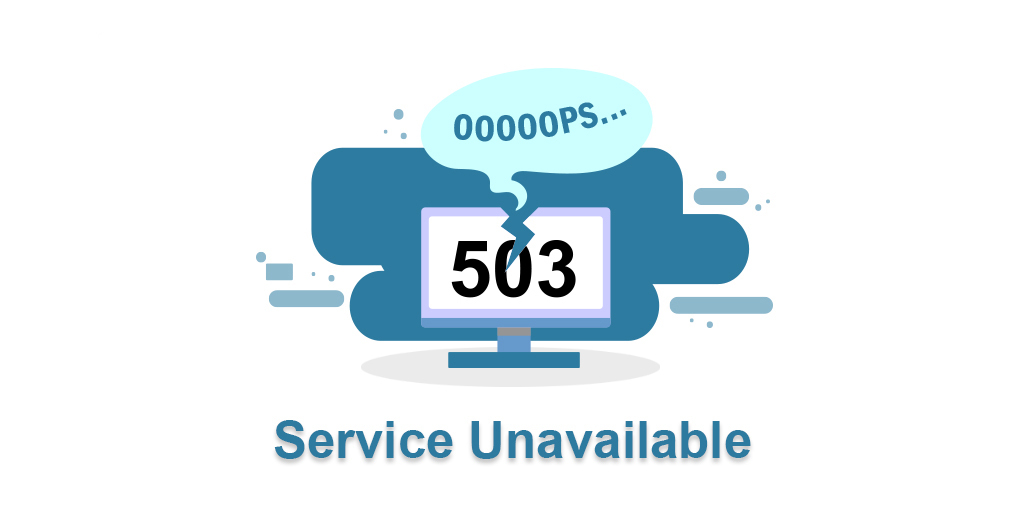Overview of Domain and Hosting
Think of a domain as the digital address for your website. It's the unique string (like www.yourwebsite.com) that users type into their browsers to access your site. This identifier serves as your online brand and helps users find and remember your website. Selecting a good domain name is like to choosing the storefront sign that attracts visitors to your physical business—it should be memorable, relevant, and representative of your brand or content.
While a domain is the address, web hosting can be compared to the physical space where your website resides. It's the service that allows your site's files, images, content, and data to be stored securely and accessible to online visitors. Hosting provides the necessary infrastructure, server space, and technologies to ensure your website runs smoothly and remains accessible to users 24/7.
What is a Domain?
A domain acts as your online coordinates. It represents your online persona and serves as the gateway through which users travel to your website. Such as selecting a name for a physical storefront, choosing the right domain needs to be memorable, captivating your brand essence, and easy to remember.
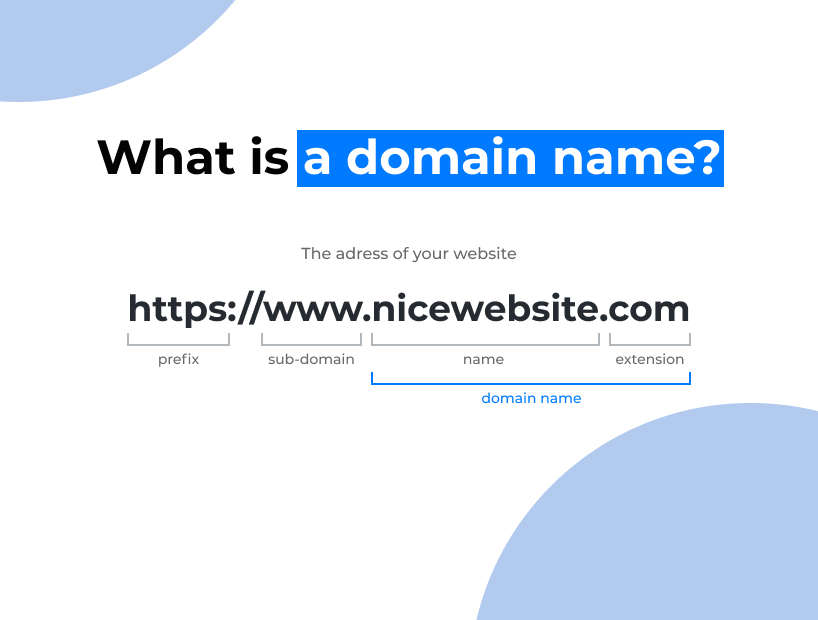
How Domains Work
Behind the scenes, domains work through the Domain Name System (DNS), a sophisticated network that translates human-readable domain names into computer-readable IP addresses. When a user types a domain name into their browser, the DNS system directs them to the specific server hosting the website's content. This seamless translation process occurs in the background, enabling users worldwide to access websites by entering their respective domain names.
Different Types of Domain Extensions
Domains come with a variety of extensions, also known as top-level domains (TLDs), which appear after the "dot" in a web address. Common extensions like .com, .org, and .net are popular choices for commercial, organizational, and network-focused websites, respectively. However, the domain landscape has expanded significantly, introducing specialized extensions like .blog, .tech, .store, and country-specific ones like .uk, .ca, and .jp. Each extension carries its own connotations, purposes, and availability, allowing website owners to tailor their domain choices to align with their brand or niche.
Choosing the right domain extension is key as it contributes to brand identity, reflects website purpose, and aids in search engine optimization (SEO). While .com remains a popular and universally recognized extension, industry-specific TLDs can enhance visibility and memorability within certain sectors. Target audience, branding strategy, and broader objectives often influence the choice of the ideal domain extension.
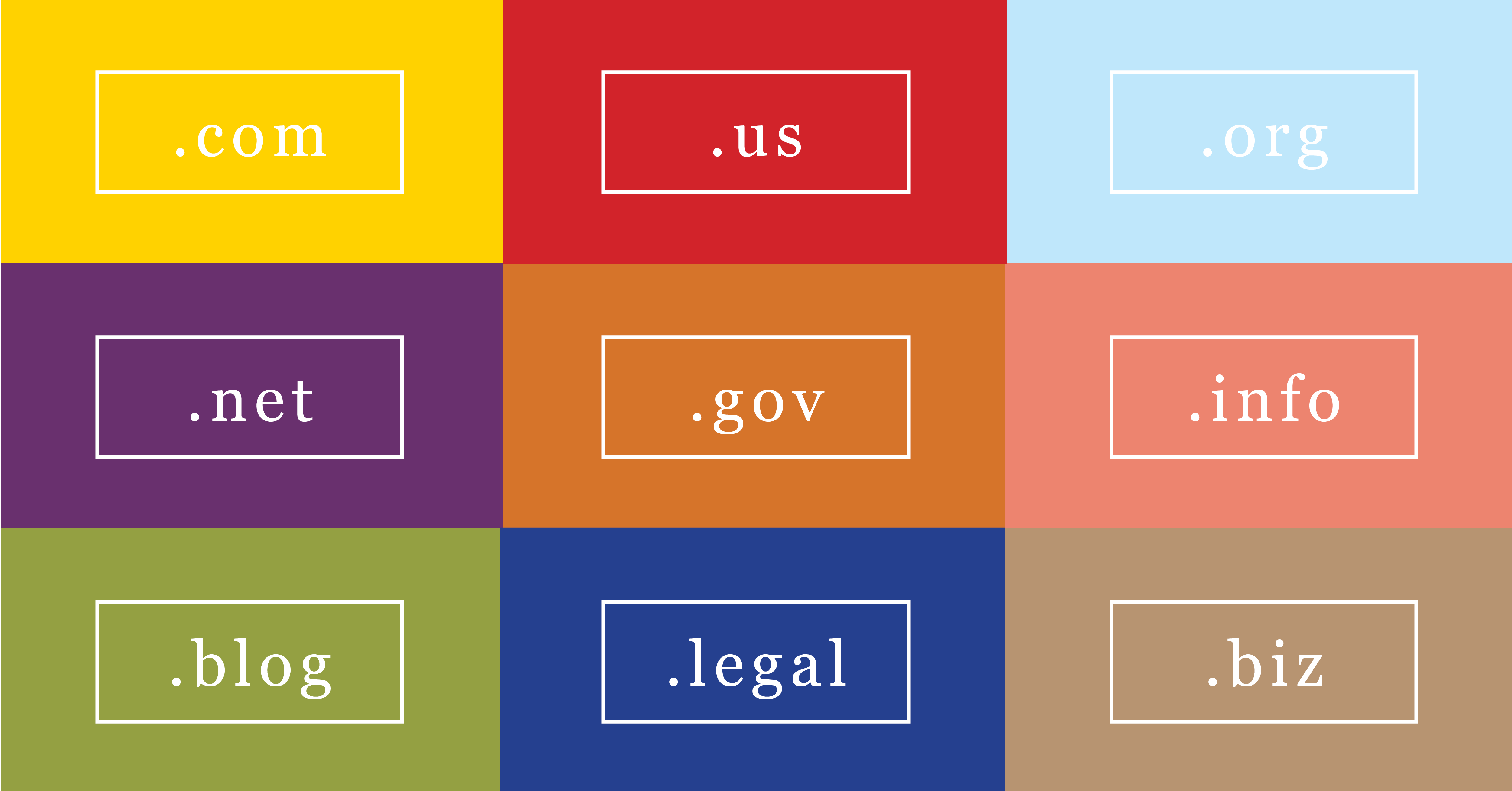
What is Hosting?
While a domain acts as your web address, hosting provides the infrastructure that houses your website's content. It's essentially the digital space where your website files, images, databases, and other content reside. Hosting services ensure your website remains accessible to users worldwide, operating around the clock. It's the backbone that supports your online presence and ensures your website is up and running.
Different Types of Hosting
Shared Hosting
This form of hosting involves multiple websites sharing resources on a single server. It's cost-effective and suitable for smaller websites with moderate traffic. However, since resources are shared, performance might fluctuate based on other websites' activity on the same server.
VPS (Virtual Private Server) Hosting
VPS hosting hosts a single server into multiple virtual servers, allowing websites to have dedicated resources. It offers more control, flexibility, and better performance than shared hosting, making it suitable for websites experiencing growth.
Dedicated Hosting
With dedicated hosting, your website has an entire server dedicated exclusively to it. This provides maximum control, customization, and good performance. It's ideal for large-scale websites or those requiring extensive resources.
Cloud Hosting
Cloud hosting operates across multiple interconnected servers. It offers scalability, reliability, and flexibility by utilizing resources from various servers. Websites on cloud hosting can handle sudden traffic spikes efficiently and are suitable for dynamic or rapidly growing websites.

How Hosting Affects Website Performance
Hosting directly impacts your website's performance, speed, and user experience. Factors like server uptime, loading times, and resource allocation influence how quickly your website loads and responds to user requests. Optimal hosting ensures seamless browsing experiences, faster loading times, and minimal downtime, leading to better user satisfaction and search engine rankings.
Domain Vs Hosting – The Key Differences
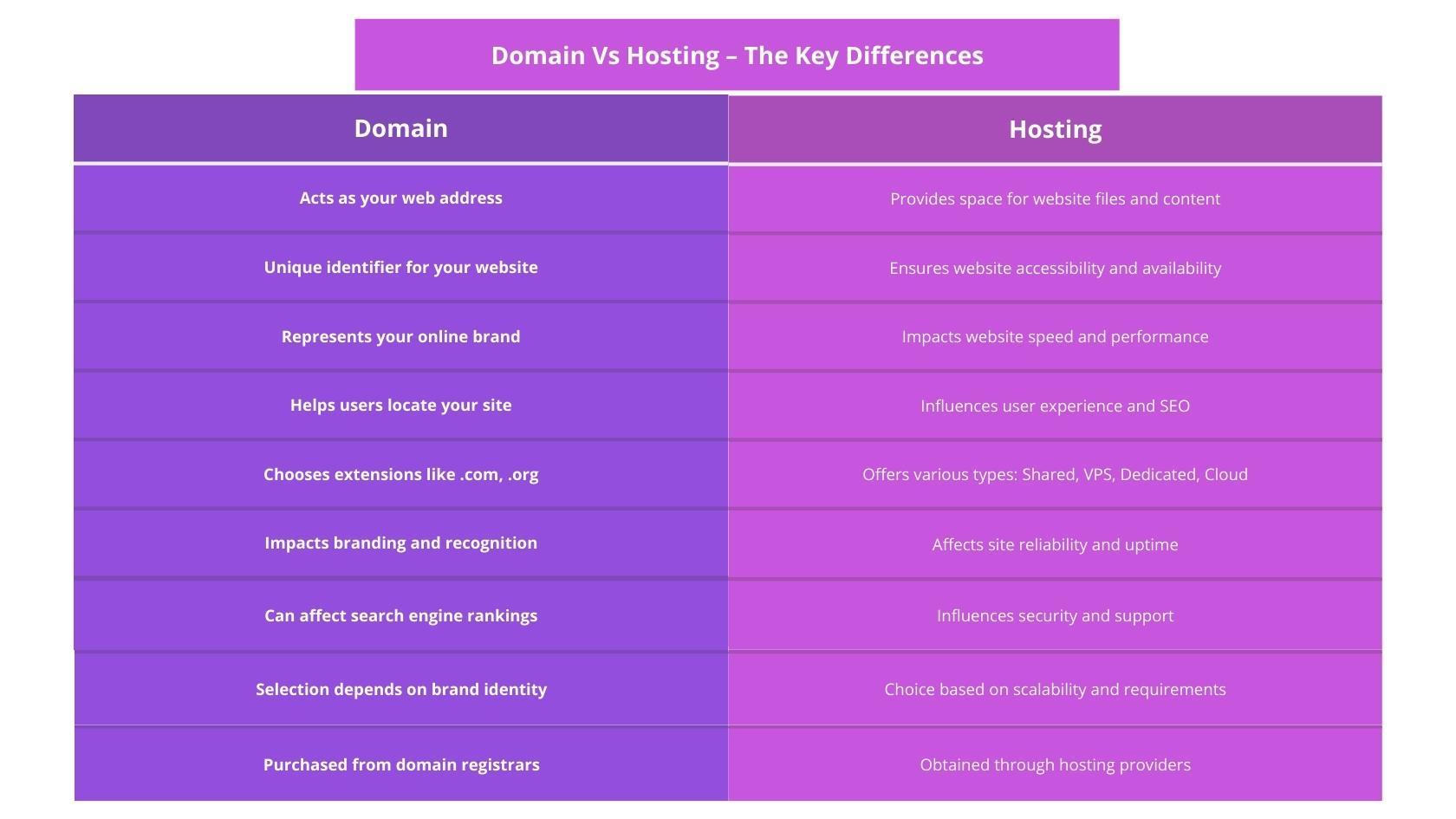
Importance of Choosing the Right Domain and Hosting Provider
Selecting the right domain and hosting provider is crucial in establishing a good online presence.
Brand Identity and Accessibility
A well-chosen domain not only represents your brand but also helps with accessibility. It's the first impression users have of your website and contributes to brand recognition. Hosting, on the other hand, ensures that your website is always available to visitors, affecting its reliability and uptime.
User Experience and Performance
A user-friendly domain that's easy to remember and type directly impacts user experience. At the same time, hosting plays a critical role in website performance—speed, loading times, and reliability—directly influencing user satisfaction and engagement.
Search Engine Optimization (SEO)
Both domain and hosting affect a website's SEO. A relevant domain name, coupled with good hosting practices that enhance site speed and uptime, positively impacts search engine rankings. Choosing the right hosting provider with good infrastructure and performance can lead to better SEO.
Security and Support
A dependable hosting provider offers excellent security measures, protecting your website from potential threats like malware or hacking attempts. Additionally, reliable customer support from both domain and hosting providers is crucial for troubleshooting issues and ensuring your website runs smoothly.
Scalability and Future Growth
Opting for scalable hosting and a flexible domain allows for future growth and expansion of your website. This scalability is essential, especially for businesses expecting increased traffic or enhancements in the future.

Common Misconceptions
There's often confusion around the concepts of domains and hosting. Let's shine a light on some prevalent misconceptions and unravel the truths behind them:
Domains and hosting are one and the same
While closely linked, they serve very different purposes. Domains act as the virtual addresses users type into their browsers to find your site. Hosting, on the other hand, is the virtual real estate where your website's files reside, ensuring it's accessible to visitors.
Domain extensions significantly impact SEO rankings
While catchy extensions might grab attention, their impact on search engine rankings is minimal. Instead, focus on good content and website performance
All hosting providers offer identical services
Hosting services vary widely in features, reliability, and support. Researching and choosing the right provider is crucial for your online experience.
Free hosting is just as reliable as paid hosting
Free hosting often comes with limitations, such as restricted bandwidth and support. Choosing paid hosting usually ensures better reliability, security, and scalability.
Changing a domain name tanks your SEO rankings
Properly executed domain changes, with proper redirects and updates, will not affect your SEO.
The more expensive the domain, the better it is
The value of a domain lies in its relevance and resonance with your brand, not just its price tag. Quality content and user experience are most important.
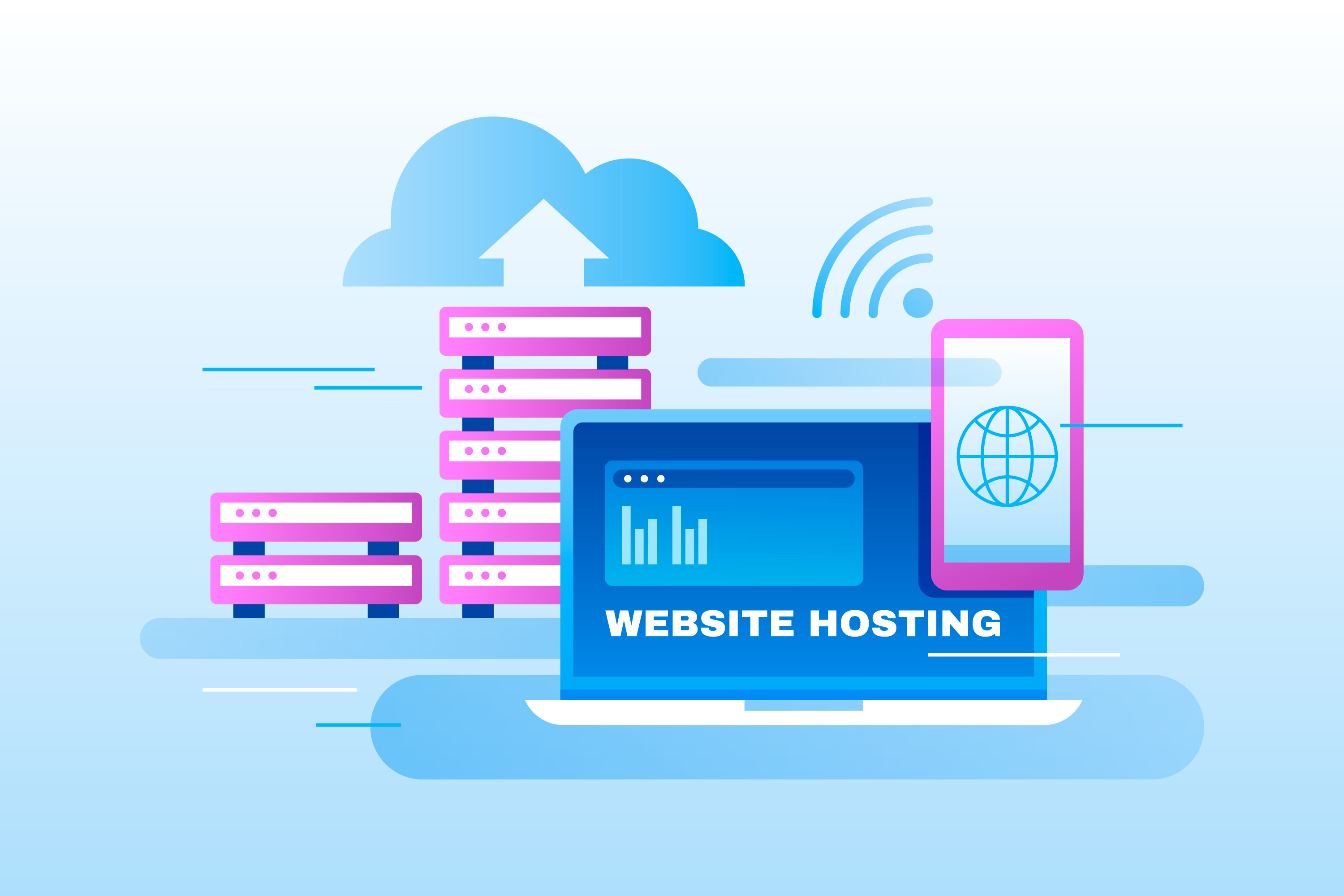
Tips for Choosing the Right Domain and Hosting
Selecting the right domain and hosting services is key to laying a solid foundation for your digital presence. Here are some useful tips:
Factors to Consider:
- Your domain should reflect your brand identity. Keep it concise, memorable, and aligned with your business or blog.
- While .com is popular, explore extensions like .net, .org, or niche-specific ones for relevance. Incorporating keywords related to your niche can also boost visibility.
- A domain that's easy to pronounce and type helps with recall. Avoid complex spellings or symbols that might confuse visitors.
- Assess your website's size, expected traffic, and growth potential. Opt for a hosting plan that aligns with your current requirements and allows room for scalability.
- Look for hosting providers with high uptime guarantees. A reliable host ensures your website is consistently accessible to visitors.
- A hosting provider with reliable customer support and security measures is essential.
Recommendations for Beginners:
- For beginners, shared hosting plans are budget-friendly and cater well to moderate traffic. They're an excellent starting point while you grow.
- Don't rush! Research multiple domain registrars and hosting providers. Compare features, pricing, and customer reviews before making a decision.
- While starting small is wise, choose a hosting plan that allows easy upgrades as your website expands.
- Many providers offer discounts or bundled services. Explore these options but consider long-term costs.
- Before signing up, carefully read the terms of service and understand any limitations or renewal costs. Avoid surprises later on by being informed upfront.
Conclusion
A domain isn't just an address; it's your brand's online persona, which means you have to choose wisely. Selecting hosting services involves weighing reliability, support, and security against current needs and future growth. Beginners benefit from starting small and expanding gradually.
I believe the connection between domain and hosting is crucial. They form the backbone of a successful online presence, where your brand meets technical reliability. Taking careful steps, balancing your current needs with future goals, sets the stage for a strong digital presence. This approach ensures smooth experiences for users and makes an impact on your audience.
What exactly is a domain, and what does hosting entail?
A domain is your website's address, like a digital street sign, directing users to your site. Hosting is the space where your website's data, files, and content are stored, ensuring it's accessible online.
How do domain extensions affect websites?
Domain extensions, like .com, .org, or .net, influence user perception and brand identity. While they don't directly impact SEO, they contribute to your site's ability of being recognized and its relevance.
Which hosting type is best suited for a small business or blog?
For small businesses or blogs, shared hosting is often a cost-effective and practical starting point. It allows multiple websites to share resources on a single server.
Can I change my domain name without affecting my website's SEO?
Yes, changing a domain name can be done without harming SEO if managed correctly. Proper redirects and updates help maintain your website's ranking.

Nadejda Milanova
An experienced Content creator in the field of Search Engine Optimization (SEO) and WordPress. A true proffesional with a Master's degree focused on journalism.
Read more by Nadejda Milanova



